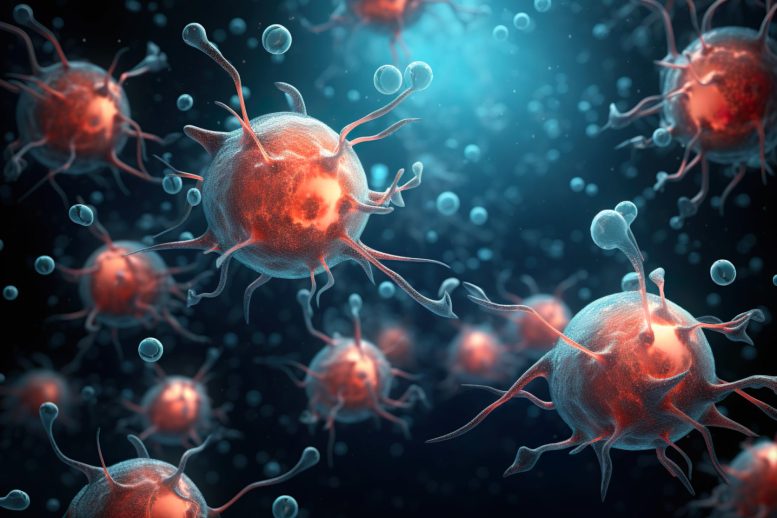
Scientists have completed an analysis of approximately 10,000 proteins involved in 10 different types of cancer, aiming to understand the proteins and their regulatory networks driving tumor growth beyond genetic information. This comprehensive proteomic study, which encompasses various chemical modifications, is shedding light on how cancer grows and spreads, offering new prospects for therapies that could block key proteins or trigger immune responses, and explaining why some patients might not respond to existing immunotherapies.
Understanding of molecular basis of cancer could pave the way for novel treatments.
Researchers have conducted an in-depth study on the proteins involved in various cancerous tumors, revealing insights that genome sequencing alone cannot provide. By deciphering the behavior of proteins in cancer cells, there’s potential for developing treatments that inhibit crucial proteins responsible for cancer progression or treatments that trigger immune responses to abnormal proteins created by cancer cells.
Led by Washington University School of Medicine in St. Louis, the Broad Institute of MIT and Harvard, Brigham Young University, and other institutions around the world, the Clinical Proteomic Tumor Analysis Consortium investigates key proteins driving cancer and how they’re regulated.
The findings are published Aug. 14 in a set of papers in the journals Cell and Cancer Cell.
The Clinical Proteomic Tumor Analysis Consortium is funded by the National Cancer Institute of the National Institutes of Health (NIH).
“In our efforts to develop better cancer therapies, this new analysis of the proteins driving tumor growth is the next step after cancer genome sequencing,” said senior author Li Ding, Ph.D., the David English Smith Distinguished Professor of Medicine at Washington University. “Through our past work sequencing the genomes of cancer cells, we identified almost 300 genes driving cancer. Now, we are studying the details of the machinery these cancer genes set in motion — the proteins and their regulatory networks that actually do the work of causing uncontrolled cell division. We are hopeful this analysis will serve as an important resource for cancer researchers seeking to develop new treatments for many tumor types.”
The researchers analyzed about 10,000 proteins involved in 10 different types of cancer. Ding emphasized the importance of the sheer volume of data in this type of analysis; many of these important cancer-driving proteins are rare in any single cancer and could not have been identified had the tumor types been studied individually. The analysis included two different types of lung cancer as well as colorectal, ovarian, kidney, head and neck, uterine, pancreatic, breast, and brain cancers.
“Many of these proteins driving cancer are found in multiple tumor types but at low frequency,” said Ding, also a research member of Siteman Cancer Center at Barnes-Jewish Hospital and Washington University School of Medicine. “When we analyze many cancer types together, we increase the power we have to detect important proteins that are causing the cancer to grow and spread. A combined analysis also allows us to pinpoint the major common mechanisms driving cancers across types.”
Beyond the function of individual proteins, such data also allow the researchers to understand how proteins interact with one another to fuel cancer growth. If the levels of two proteins correlate with one another — for example, when one is present at high levels and the other always is as well — this can indicate that the two proteins act as partners. Disrupting the interaction may be a promising way to block tumor growth.
The studies, including one co-led by Ding and Gad Getz, Ph.D., of the Broad Institute, also revealed different ways proteins can be chemically altered to change their function. The researchers documented how such chemical changes — processes called acetylation and phosphorylation — can alter DNA repair, change immune responses, and modify how DNA is folded and packaged, among other important molecular changes that can play roles in driving cancer.
The research also sheds light on the effectiveness of immunotherapies. Immunotherapies such as checkpoint inhibitors often work best in cancers with a lot of mutations, but even then, they don’t work for all patients. The researchers found that high numbers of mutations don’t always result in an abundance of abnormal proteins, which is what the immune system targets when attacking a tumor.
“For some cancers, even with mutations having the potential to generate tumor antigens, if there is no abnormal protein expressed, or very little, such mutations may not be targetable for treatment,” Ding said. “This could be an explanation for why some patients don’t respond to immunotherapy, even when it seems like they should. As such, our proteomics investigation covering the expression profiles of tumor antigens are particularly useful for designing new immunotherapy targeting selected mutations.”
In another study, Ding’s team identified patterns of DNA methylation, another chemical alteration that can influence the way genes are expressed. Such patterns can be key cancer drivers. In one important finding, the team identified a molecular switch that suppresses the immune system in certain tumor types.
The final paper in the set of four studies makes the data and analysis resources used by the consortium available to the wider research community.
“In general, this thorough proteomic and chemical modification analysis across many cancer types — combined with our longstanding knowledge of cancer genomics — provides another layer of information that we hope can help answer many ongoing questions about how cancer grows and manages to evade many of our best treatments,” she said.
References: “Integrative multi-omic cancer profiling reveals DNA methylation patterns associated with therapeutic vulnerability and cell-of-origin” by Wen-Wei Liang, Rita Jui-Hsien Lu, Reyka G. Jayasinghe, Steven M. Foltz, Eduard Porta-Pardo, Yifat Geffen, Michael C. Wendl, Rossana Lazcano, Iga Kolodziejczak, Yizhe Song, Akshay Govindan, Elizabeth G. Demicco, Xiang Li, Yize Li, Sunantha Sethuraman, Samuel H. Payne, David Fenyö, Henry Rodriguez, Maciej Wiznerowicz, Hui Shen and Zhen Zhang, 14 August 2023, Cancer Cell.
DOI: 10.1016/j.ccell.2023.07.013
“Proteogenomic data and resources for pan-cancer analysis” by Yize Li, Yongchao Dou, Felipe Da Veiga Leprevost, Yifat Geffen, Anna P. Calinawan, François Aguet, Yo Akiyama, Shankara Anand, Chet Birger, Song Cao, Rekha Chaudhary, Padmini Chilappagari, Marcin Cieslik, Antonio Colaprico, Daniel Cui Zhou, Corbin Day, Marcin J. Domagalski, Myvizhi Esai Selvan, David Fenyö, Steven M. Foltz and Zhen Zhang, 14 August 2023, Cancer Cell.
DOI: 10.1016/j.ccell.2023.06.009
“Pan-cancer analysis of post-translational modifications reveals shared patterns of protein regulation” by Yifat Geffen, Shankara Anand, Yo Akiyama, Tomer M. Yaron, Yizhe Song, Jared L. Johnson, Akshay Govindan, Özgün Babur, Yize Li, Emily Huntsman, Liang-Bo Wang, Chet Birger, David I. Heiman, Qing Zhang, Mendy Miller, Yosef E. Maruvka, Nicholas J. Haradhvala, Anna Calinawan, Saveliy Belkin, Alexander Kerelsky and Zhen Zhang, 14 August 2023, Cell.
DOI: 10.1016/j.cell.2023.07.013
“Pan-cancer proteogenomics connects oncogenic drivers to functional states” by Yize Li, Eduard Porta-Pardo, Collin Tokheim, Matthew H. Bailey, Tomer M. Yaron, Vasileios Stathias, Yifat Geffen, Kathleen J. Imbach, Song Cao, Shankara Anand, Yo Akiyama, Wenke Liu, Matthew A. Wyczalkowski, Yizhe Song, Erik P. Storrs, Michael C. Wendl, Wubing Zhang, Mustafa Sibai, Victoria Ruiz-Serra, Wen-Wei Liang and Zhen Zhang, 14 August 2023, Cell.
DOI: 10.1016/j.cell.2023.07.014
Yize Li, Ph.D., a former doctoral student and now a postdoc in Ding’s lab, is the first author on two of the papers, one about oncogenic drivers and the other focused on data and resources. Wen-Wei Liang, Ph.D., a former doctoral student and past postdoc in Ding’s lab, is first author on the paper focused on DNA methylation; and Yizhe Song, a current doctoral student in Ding’s lab, is a co-first author on the paper about post-translational modifications. Matthew H. Bailey, Ph.D., a former doctoral student in Ding’s lab, now an assistant professor at Brigham Young University, is a co-first author on the paper about oncogenic drivers.
The research was funded by the National Institutes of Health.

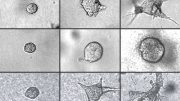
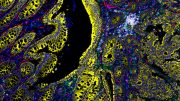

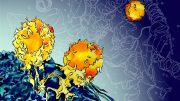
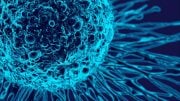
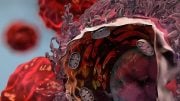
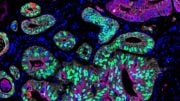
Be the first to comment on "Scientists Uncover How Proteins Drive Cancer Growth"